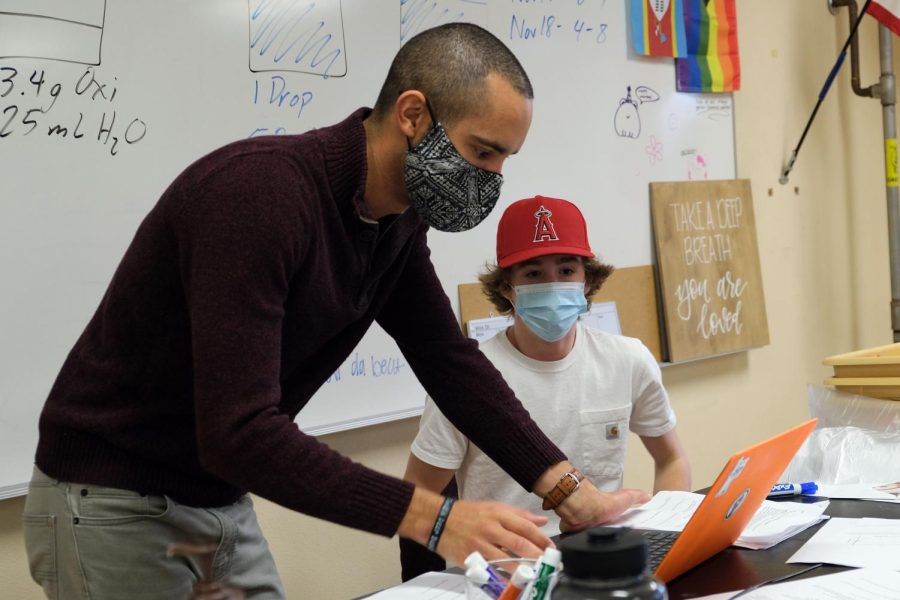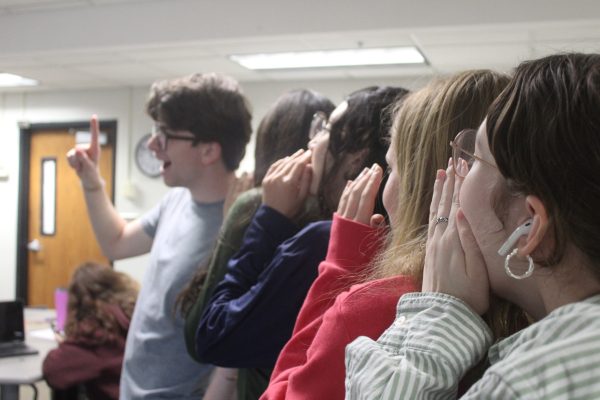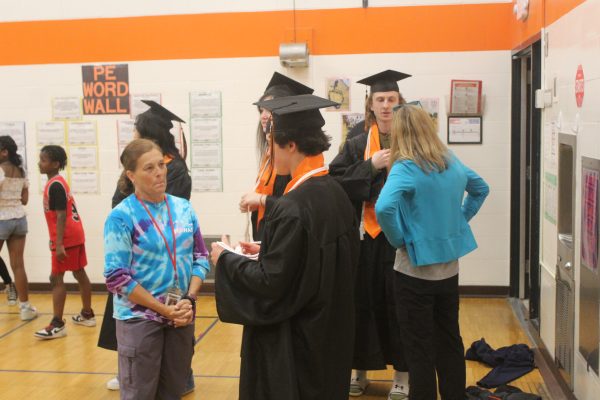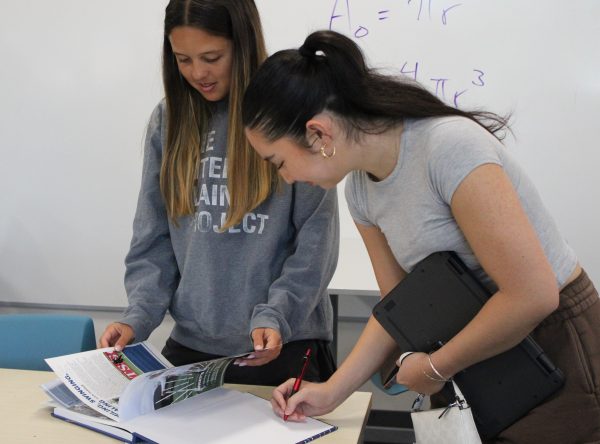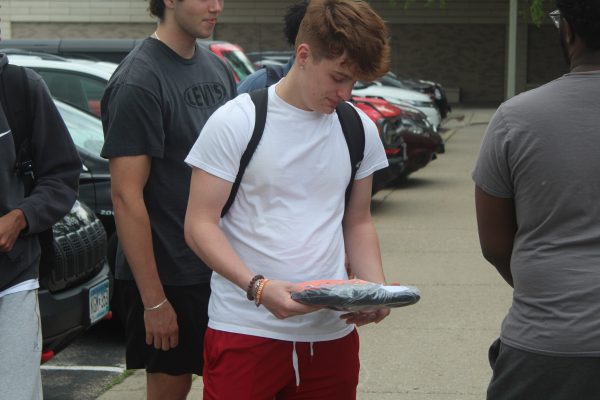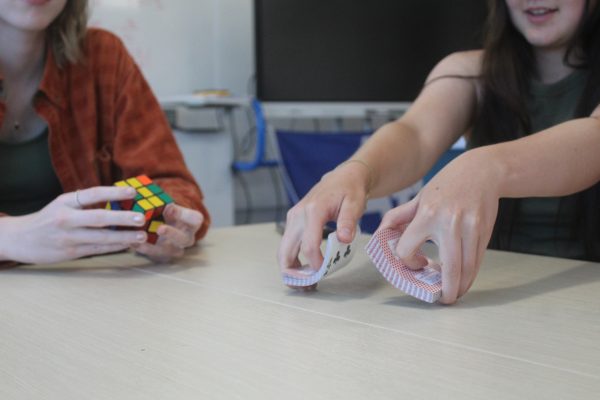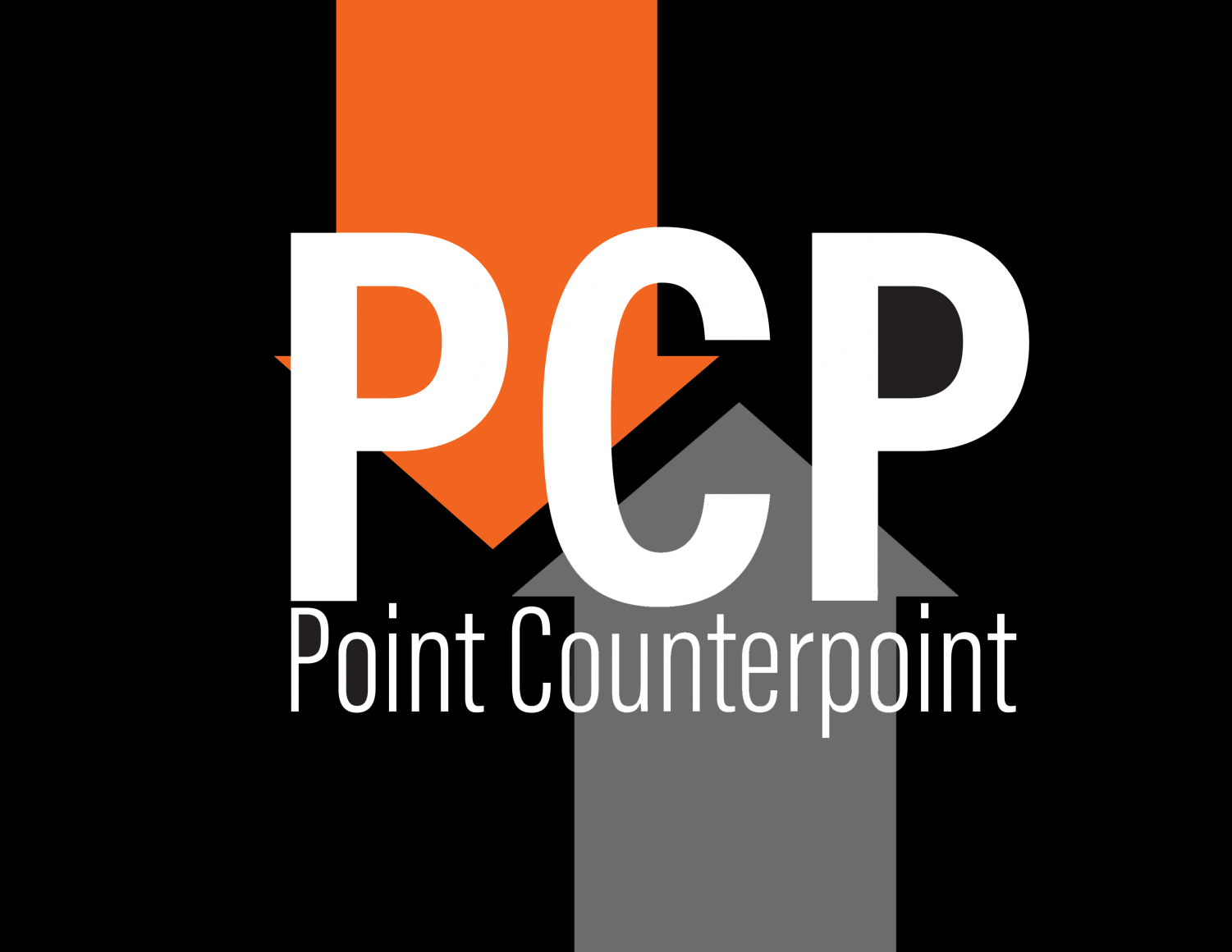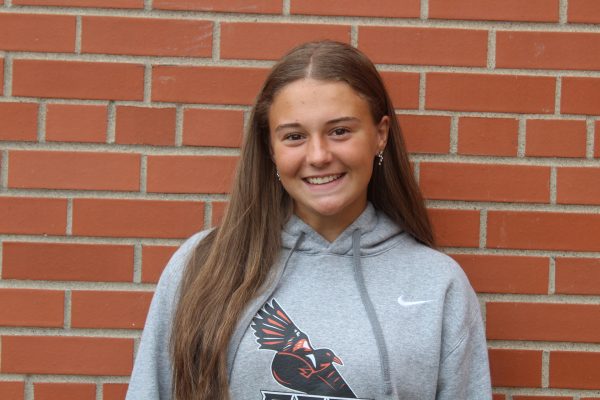Staff Editorial: New conferences format sparks conversation
Students should take initiative, advocate for themselves
Chemistry teacher Alexander Polk looks at Sophomore Bjorn Bleske’s progress in class Nov. 3. The student-led conference format will begin the week of Nov. 15.
November 3, 2021
For fall conferences this school year, administration has made adjustments to the format. Students will be leading conferences, while being facilitated by Park Connections advisers. This could potentially affect students negatively due to the intricacies of the new set-up.
The information self-reporting form, which will be filled out by students prior to their meeting, should be taken with a grain of salt, as it isn’t the most accurate information on students. Different procedures, like having the option to meet with individual teachers, should be made to ensure students can accurately reflect on their needs during conferences.
For some students, their Park Connections adviser is solely their Park Connections teacher, and might not be able to accurately examine how well students are doing in each course. If teachers look to PowerSchool as a supplement to the self-reporting form, it possibly could lead to misinformation on the academic wellbeing of students. PowerSchool won’t be the most optimal way to assess students because it is still early in the semester and grades are prone to change.
Although the new format gives students more power and responsibility over their own education, students, particularly underclassmen, are still new to high school and don’t understand their academic needs. Even though many underclassmen experienced a similar format during middle school, it still is challenging because the academic rigor in high school is different. Some students might even blatantly avoid issues in classes they’re struggling in, defeating the purpose of conferences.
An upside to this format is that conferences will be more quick and straightforward. Before the pandemic, teachers would meet with parents in the field house, which at times, created long lines and made conferences a hassle. Now that all meetings are set to be virtual, the Echo Editorial Board believes conferences will be more accessible for busy families. Transportation was also an issue, but now parents don’t have to leave the comfort of their home to attend conferences.
The Echo Editorial Board believes it is a students responsibility to accurately inform parents and teachers about how they’re doing in their classes. Especially because of the new format, students will need to take initiative to contact teachers and advocate for themselves.



